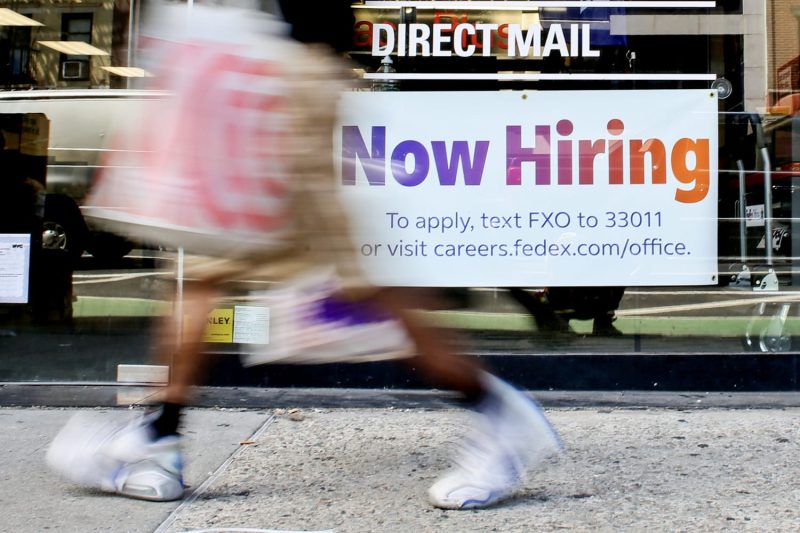The recently released report by the Labor Department has sent shockwaves through the financial markets and raised significant concerns about the health of the U.S. economy. According to the revised figures, the U.S. added 818,000 fewer jobs than originally estimated, painting a bleak picture of the employment situation in the country.
The drastic downward revision in job numbers is a troubling sign for policymakers, economists, and investors alike. It raises questions about the accuracy of economic data and the strength of the recovery from the COVID-19 pandemic. The discrepancy between the initial estimates and the revised figures highlights the challenges in accurately measuring key economic indicators in a rapidly changing and complex environment.
The labor market plays a crucial role in driving economic growth and consumer spending. A weaker-than-expected job market can dampen consumer confidence, leading to reduced spending and slower economic activity. Furthermore, job losses can have a ripple effect on other sectors, impacting businesses across the economy.
The revised job numbers also have implications for monetary policy. The Federal Reserve closely monitors labor market data when making decisions about interest rates and other policy measures. The unexpected revision in job figures could prompt the Fed to reassess its stance on monetary policy, potentially delaying plans to taper its asset purchase program or raise interest rates.
In addition to the direct economic consequences, the revised job numbers also have broader implications for society. A weaker labor market can exacerbate income inequality, disproportionately affecting vulnerable populations and widening the wealth gap. Job losses can also increase financial stress for individuals and families, leading to a range of social and health issues.
Moving forward, policymakers and economists will need to closely monitor the labor market and other economic indicators to gauge the ongoing impact of the revised job numbers. Addressing the underlying factors contributing to the weaker-than-expected job growth will be critical to supporting a more robust and inclusive recovery.
As the U.S. economy navigates the challenges posed by the revised job numbers, policymakers, businesses, and individuals will need to work together to foster a more resilient and sustainable economic future. By addressing the root causes of the weaker labor market and implementing targeted policy measures, the U.S. can strive towards a more equitable and prosperous society for all its citizens.



























